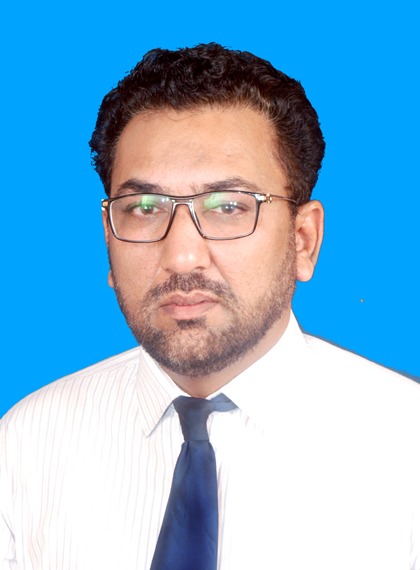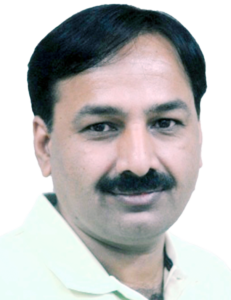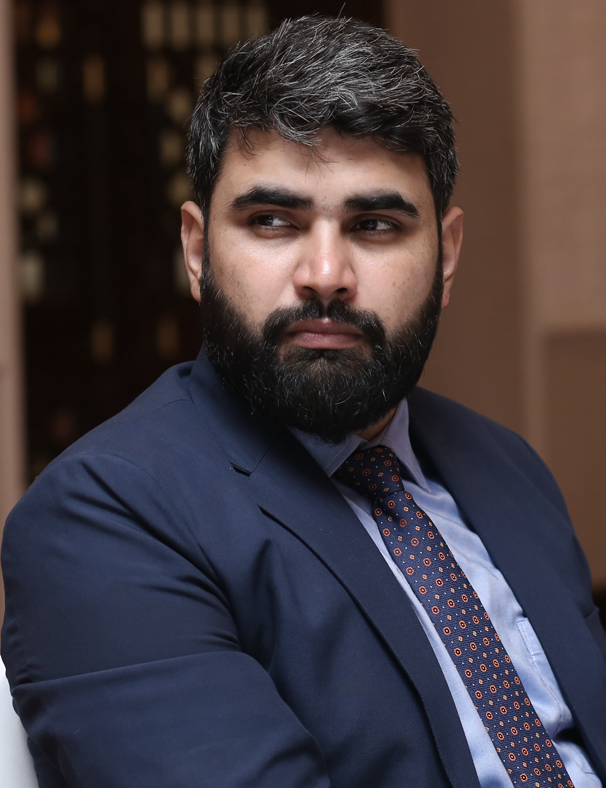
Muhammad Amir Rana
amir@pakpips.com
President (Pak Institute for Peace Studies)
Muhammad Amir Rana is the President of the Pak Institute for Peace Studies (PIPS) and a distinguished expert in counter-terrorism, counter-extremism, and regional security. He has worked extensively on issues related to internal security, political economy and regional politics, with his research appearing in numerous national and international journals, professional publications, and magazines. As a regular columnist for Dawn, Pakistan’s foremost English newspaper, he frequently shares his insights on major media outlets.
In addition, Rana serves as the editor of the Pakistan Annual Security Report, PIPS’ English research journal Conflict and Peace Studies, and the Urdu monthly magazine Tajziat. He also leads Narratives, a publishing and media production house dedicated to producing and disseminating counter-extremism arguments and narratives.
Awards:
• German Peace Prize 2016
Books:
• The Militant: Development of a Jihadi character in Pakistan (The book describes different phases of development of jihadi or militant characters in Pakistan)
• Radicalization in Pakistan (Co-author with Safdar Sial).
• Dynamics of Taliban Insurgency in FATA (Co-author with Safdar Sial & Abdul Basit).
• Jihad-e-Kashmir-o-Afghanistan (Urdu) (A directory of militant and religious organizations of Pakistan).
• Gateway to Terrorism (English version of “Jihad-e-Kashmir-o-Afghanistan”, published from London)
• Seeds of Terrorism (Post-9/11 jihad scenario in South Asia, published from London)
• A to Z of Jehadi Organization in Pakistan (A comprehensive description of Pakistan’s militants and jihadi landscape including profiles of militants and religious organizations)

Safdar Hussain
safdar@pakpips.com
Managing Director
Safdar Hussain, nom de plume Safdar Sial, has been working with the Pak Institute for Peace Studies as a research analyst since March 2007. He holds a master’s degree in political science. His work focuses on conflict, insecurity, and violence in Pakistan and Afghanistan; regional political, strategic and security issues; and media and governance. He has published extensively in national and international journals and is a co-author of “Dynamics of Taliban Insurgency in FATA,” and “Radicalization in Pakistan” and editor of “Critical Ideologies: A Debate on Takfeer and Khurooj”. He is also the associate editor of PIPS research journal “Conflict and Peace Studies.”
 Abdul Qayyum
Abdul Qayyum
qayyum@pakpips.com
Joint Director
Abdul Qayyum has been working with Pak Institute for Peace Studies since 2020 as Admin & Finance Manager. He holds master’s degrees in commerce and economics. Previously, he worked as Manager Finance and Administration with Punjab Commission on the Status of Women-PCSW, Govt. of the Punjab. His areas of expertise are financial management and administration.
 Imran Mukhtar
Imran Mukhtar
imran@pakpips.com
Media Coordinator
Imran Mukhtar is a journalist and researcher, and works as Media Coordinator at PIPS. He has over 15 years of experience of reporting and field work in the journalism and development sector. He holds a master’s degree in mass communication with specialization in ‘print media and mass communication theory.’ He is also the alumni of ‘2012 US General Election Embed Program’ and ‘US-Pakistan Professional Partnership Program in Journalism.’
Imran has reported on diverse areas including security, politics, human rights, migration, governance and climate change. His work has appeared extensively in a number of local and international media outlets including the Thomson Reuters Foundation (TRF), The Times, The New Humanitarian, The Guardian and the D+C (Development and Cooperation).
 Muhammad Murtaza
Muhammad Murtaza
murtaza@pakpips.com
Project Manager
Muhammad Murtaza holds a master’s degree in International Relations, with a focus on international organizations. Over the past three years, he has gained experience in project management, research, and administration through his work with various international non-governmental organizations. In his most recent role as Project Manager at the Konrad Adenauer Stiftung for the Regional Program in Southwest Asia, he contributed insights on projects related to Pakistan and collaborated closely with the Director in preparing evaluation reports. During his time at Friedrich Ebert Stiftung’s Pakistan Office, he worked as a research assistant for three editions of the Afghanistan Monitor.
 Esham Farooq
Esham Farooq
esham@pakpips.com
Research Officer
Esham Farooq has worked as a Research officer with the Hanns Seidel Foundation (HSF) and the Asian Economic and Institutional Research Development (AEIRD). She holds a degree in International Relations from Quaid-e-Azam University, Islamabad. Her research interests include foreign policy analysis, strategic studies, non-traditional security challenges, geopolitics, and cultural studies.
 Zain Zaigham Khan
Zain Zaigham Khan
zain@pakpips.com
Research Officer
Zain Zaigham Khan is a Researcher Officer at PIPS who specializes in security issues including a focus on Central Asia. He holds a Bachelor of Laws (LL.B.) from the University of London and has extensive experience in policy research and development initiatives.
He has worked with the Center for Peace and Development Initiatives (CPDI), contributing to key projects such as the UNDP Strengthening Electoral and Legislative Processes (SELP) project and multiple National Endowment for Democracy (NED) initiatives, including Budget Literacy for Journalists and Policymakers. Additionally, he has been involved in research and advocacy on climate and energy policies through the Just Energy Transition and Green Zameen projects.
Zain’s work integrates legal expertise with policy research, aiming to enhance governance, transparency, and sustainable development in the region.

